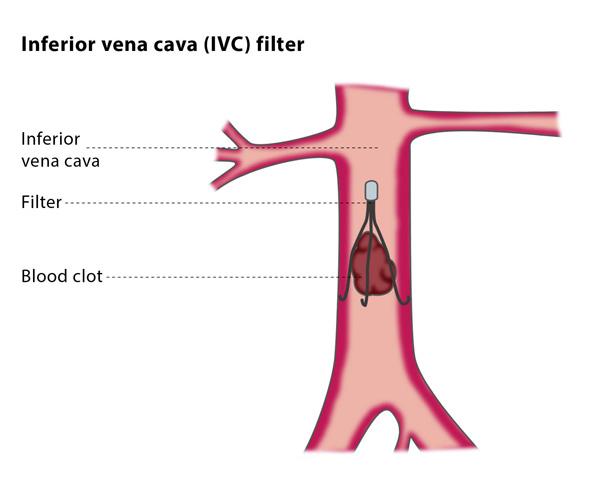
Patients with unstable pulmonary embolism who receive an inferior vena cava (IVC) filter have a significantly reduced mortality, according to a study. However, the number of unstable patients receiving an IVC filter is decreasing despite this benefit.
This retrospective cohort study was based on administrative data obtained from the National Inpatient Sample (1999–2014).
Unstable patients who received an IVC filter showed lower in-hospital all-cause mortality in each year of investigation and in all age groups. From 1999 to 2014, mortality was significantly lower with an IVC filter relative to without a filter (28.8 percent [10,140 of 35,230] vs 46.3 percent [54,018 of 116,642]; p<0.0001).
In stable patients from the same time period, mortality was comparable between patient with an IVC filter and those without a filter (5.8 percent [31,909 of 546,858] vs 6.5 percent [220,443 of 3,367,783]; p<0.0001). Among those aged >80 years, however, mortality in stable patients with an IVC filter was lower compared with those without an IVC filter (6.5 percent [7,438 of 114,457] vs 11.3 percent [64,113 of 567,348]; p<0.0001).
From 2010 to 2014, the proportion of stable patients receiving an IVC filter decreased, but still the largest number of IVC filter was inserted in this population (91.5 percent [194,502 of 212,611]).
“The largest number of IVC filters continues to be inserted in stable patients, although there is no evidence of a clinically meaningful reduced mortality with IVC filters in stable patients unless age >80 years,” the researchers noted.